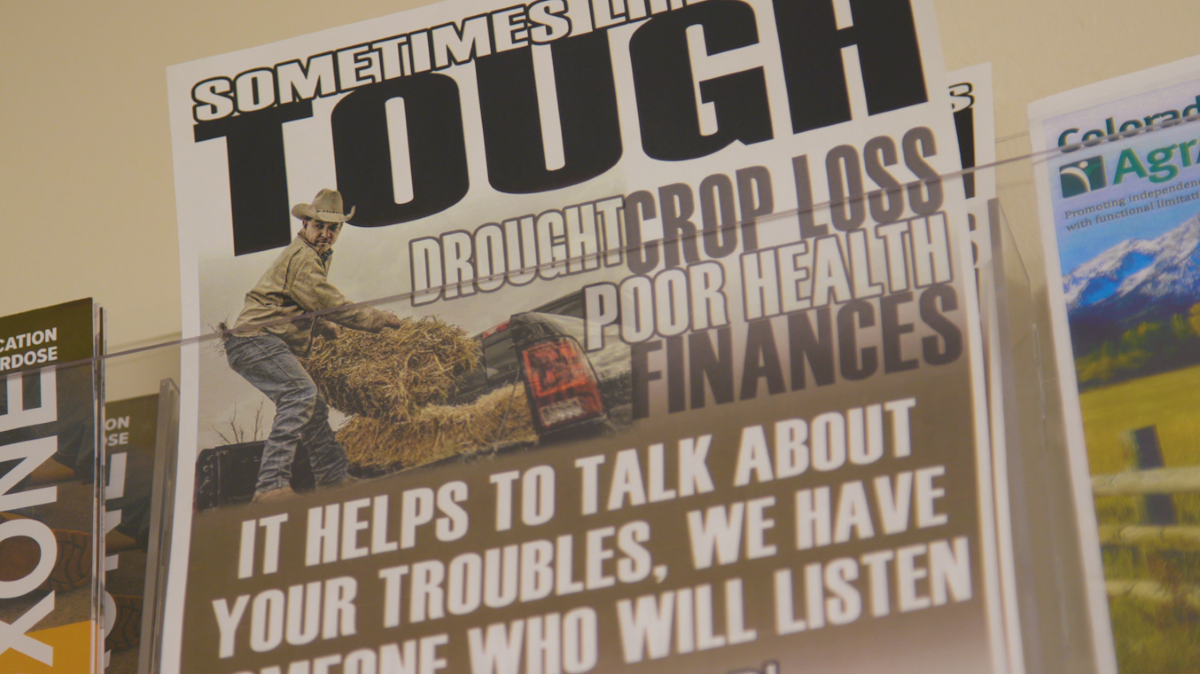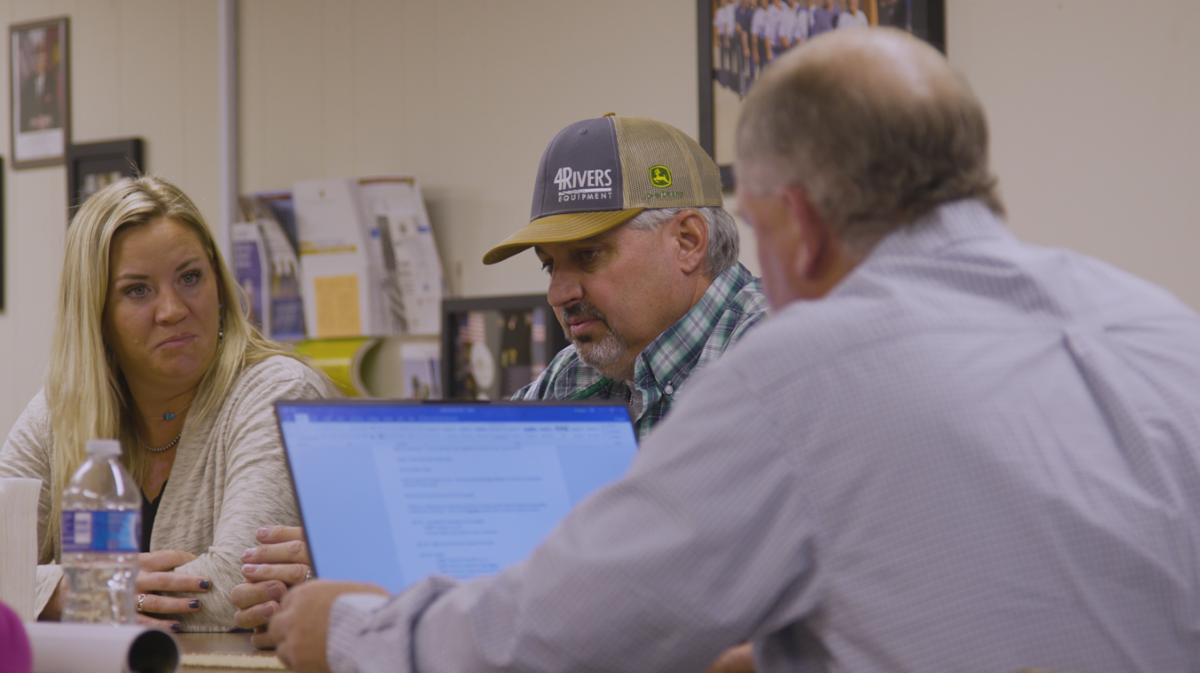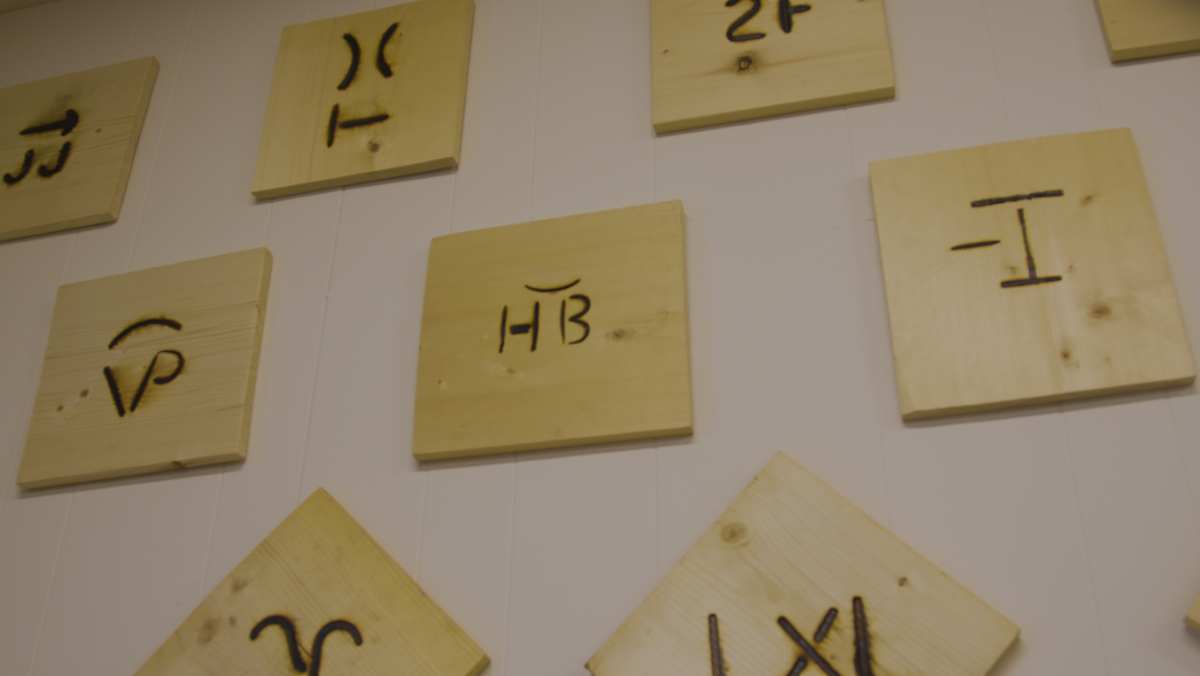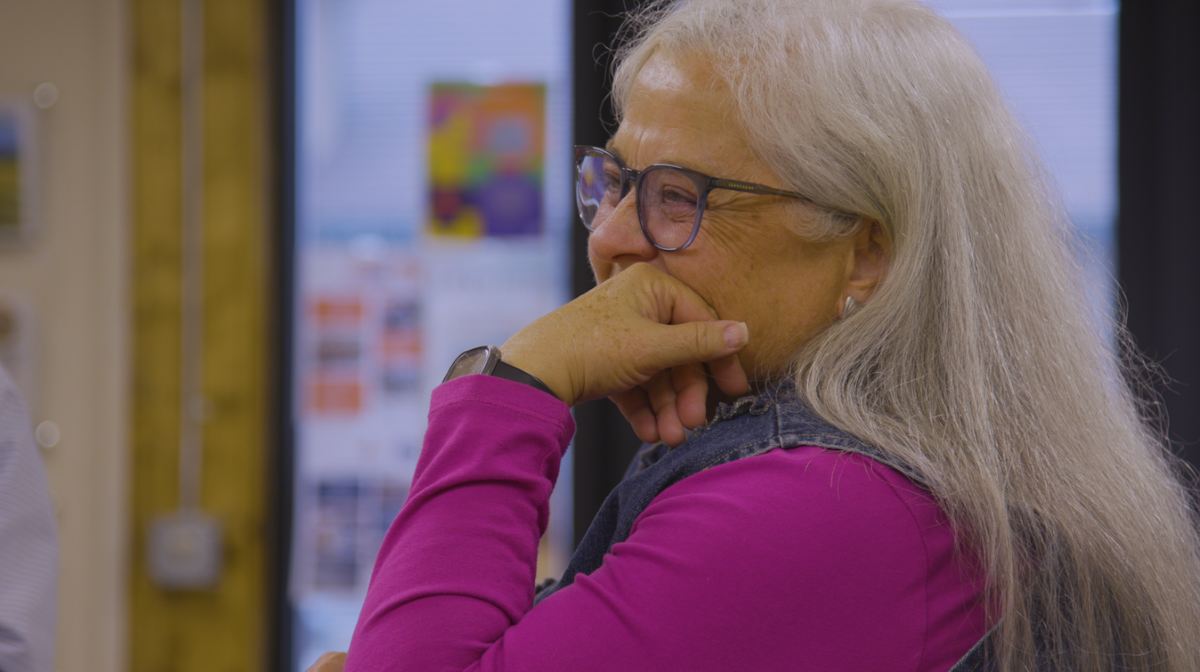How coffee and a donut remedy the stress of rural life

ROCKY FORD, Colo. — The small, Southeast Colorado town of Rocky Ford, tucked into the Arkansas Valley, is known nationally for its cantaloupes and watermelons. Its nickname — the “Sweet Melon Capital” — proudly reflects this reputation. Even the high school mascot, the Rocky Ford Meloneer, pays homage to the town’s cash crop.
But the agricultural work that brings these melons to fruition, and supports the many farms and ranches of the Arkansas Valley is both physically and mentally demanding.
Related Story
Nancy Lucero, one of the owners of Lucero Farms, addresses the stressors of farming bluntly. Essentially every aspect of farming, she said, can be stressful.
“There’s a lot of unknowns,” said Lucero. “I worry about economic things. I worry about, ‘is there going to be enough water? What’s the weather going to do?’”
Lance Larrew, a life-long ag worker, echoed the mental health issues many farmers and ranchers face, regardless of how close-knit the ag community may be.
“Everybody knows everybody, and in some ways everybody knows what’s going on, but they’re very strong people,” said Larrew. “They keep their emotions inside.”

The Coffee Break Project headquarters offers pamphlets centered around rural stress.
Photo: Chase McCleary, Rocky Mountain PBS
This work-related stress, named by some as “rural stress,” afflicts farmers and ranchers across the country. A 2021 National American Farm Bureau Poll found that about 61% of farmers and farm workers experienced more stress and mental health challenges than the year before.
Larrew highlighted a stigma within ag culture that keeps many from talking through their concerns.
“If you want to talk about their farm or something that their family has done, they’re very proud and are willing to talk to you about it,” he said. “But the struggles, they keep that to themselves.”
After journalist Priscilla Wagoner raised concerns about a series of ag worker suicides in the Kiowa County Independent, the Southeast Health Group (which has now merged with Valley-Wide Health Systems) stepped in and created the Coffee Break Project.
“Hearing from a local journalist, ‘Hey, you have suicides in your backyard. As a community mental health center, what are you doing about it… I think it was very eye-opening at the time,” said Jennifer Pollmiller, the Valley-Wide Health Systems and Coffee Break Project Director of Public Outreach.
The organization offers a safe space, sweetened with free donuts and coffee, in which farmers, ranchers and other members of the ag community can simply talk and find community.
And while many of these talks start with brief comments on the weather, they offer a starting point for much deeper, substantial conversations, participants say.
“Once you get the conversation started, it will pretty much take care of itself,” said Larrew. “[The Coffee Break Project] gives you some key phrases to help you have that difficult conversation. To get past the awkwardness.”

Jennifer Pollmiller (left), Lance Larrew (center), and Dr. J.C. Carrica discussed potential expansion opportunities for the Coffee Break Project.
Photo: Chase McCleary, Rocky Mountain PBS
Along with being a farmer, Lucero is also a Senior Research Associate at the Graduate School of Social Work at the University of Denver. She is a member of the Mississippi Choctaw, and as the Principal Investigator and co-Director for the Capacity Building Center for Tribes, Lucero travels across the country instituting and implementing organizational models for various Native communities.
In other words, she knows a thing or two about the power of togetherness.
“So many parts of being human are connected to community, including your identity and your well-being,” said Lucero. “We don’t make it very well as human beings when we’re isolated and by ourselves.”
After four years as an active volunteer and advocate within the Coffee Break Project, Lucero has witnessed the impact that the organization has had within a demographic sometimes lacking in intimate community connection.
“I think one of the things that the Coffee Break Project really stresses is to be watching out for one another,” said Lucero.
This mission is reflected in the Coffee Break Project’s slogan: “Do you look after your neighbors as close as your crop or herd?”
Despite finding early success, COVID-19 proved a difficult hurdle for the project to overcome.
The pandemic herded people indoors, and the organization found the ag community growing even more isolated than before.
“COVID just added another stressor to some of the already stressed people,” said Larrew. “We just tried to get through it and maintain… that’s all anybody did through COVID.”
From disruptions in production to lowering labor availability to rising output prices, the pandemic affected ag workers in multiple stages of the farming and ranching process, according to the U.S. Department of Agriculture.
Those affects not only included economic strains, but mental health strains as well.
According to a 2020 American Farm Bureau Federation survey, two-thirds farmers and farm workers reported that COVID-19 affected their mental health, citing cost, accessibility and availability, and stigma and embarrassment as the main reasons.
The Coffee Break Project not only maintained, but it opened its new Rocky Ford headquarters in the middle of the pandemic as well.
Located on the corner of North Main Street and Swink Avenue, the Coffee Break Project headquarters looks modest on the outside, with little more than a decal on the door to distinguish it from the neighboring offices.
However, the warm interior is filled wall-to-wall with everything from agricultural publications to informational pamphlets to a cozy little kitchen for coffee-making.
Three rows of wooden plaques line the left wall. Each bears a different brand, the signature of a farmer or rancher expressing their support for the Coffee Break Project.

Farmers and ranchers express their support for the Coffee Break Project by branding wooden plaques which take up an entire wall of the organization’s office.
Photo: Chase McCleary, Rocky Mountain PBS
The Coffee Break Project office now offers what Pollmiller describes as a “one-stop shop” for various mental health and ag community-related resources.
“We have access to some financial resources, we have other farmers who might know a great place to buy discounted fertilizer,” said Pollmiller, “and even if we don’t necessarily have a resource for you right away, we can make a couple of phone calls and find those for you.”
The Coffee Break Project teaches the COMET learning model. COMET, which stands for “Changing Our Mental and Emotional Trajectory,” was created by the High Plains Research Network Community Advisory Council — in partnership with other rural mental health professionals — specifically to address stresses that arise in rural, agricultural communities.
The High Plains Research Network is a rural community, practice-based research network based out of the University of Colorado, Denver. It uses grant and government funding to conduct primarily health research and programs aimed at benefiting rural communities across the state.
It aims to reduce rural tension by training community members to more effectively recognize signs of stress and initiate supportive interactions, as opposed to trying to fix the situations themselves.
The Coffee Break Project has worked to expand COMET’s impact across the country by offering training sessions to everyone from community leaders to school officials.
What started in Rocky Ford has now expanded beyond Colorado state borders, as groups in Texas and South Dakota are working on starting their own Coffee Break Project chapters.
Pollmiller, a long-time rodeo cowgirl who still helps coach the Otero College rodeo team, highlighted how her involvement with the project has only further strengthened her appreciation for the ag community.
“It truly is a community that wants to look after each other, and never have I felt so supported,” said Pollmiller, “and just knowing the type of people that live in this community… it makes us want to look after them. And if there’s any hardships, we want to do anything we can to help them out.
After a difficult farming season this past year, Lucero finds comfort in the support offered by the Coffee Break Project, and regardless of what may come in the future, she can rest assured knowing that her community has her back.
“I can see how my challenge is similar to other farmers’ challenges, and so I think that is always the reminder the coffee break gives me… that I can do my best.”
“And I might still have challenges,” said Lucero, “but I’m not alone.”

Nancy Lucero finds comfort in the support offered by the Coffee Break Project.
Photo: Chase McCleary, Rocky Mountain PBS
If you have an immediate mental health crisis, please call Colorado Crisis Services at 1-844-493-8255 or text TALK to 38255. Or call the National Suicide Prevention Lifeline by dialing 988.
You can call the Farm Aid Farmer Resource Hotline at 1-800-FARM-AID (1-800-327-6243) which is available Monday – Friday from 6am – 7pm PST.
Chase McCLeary is a multimedia journalist at Rocky Mountain PBS. chasemcleary@rmpbs.org.
